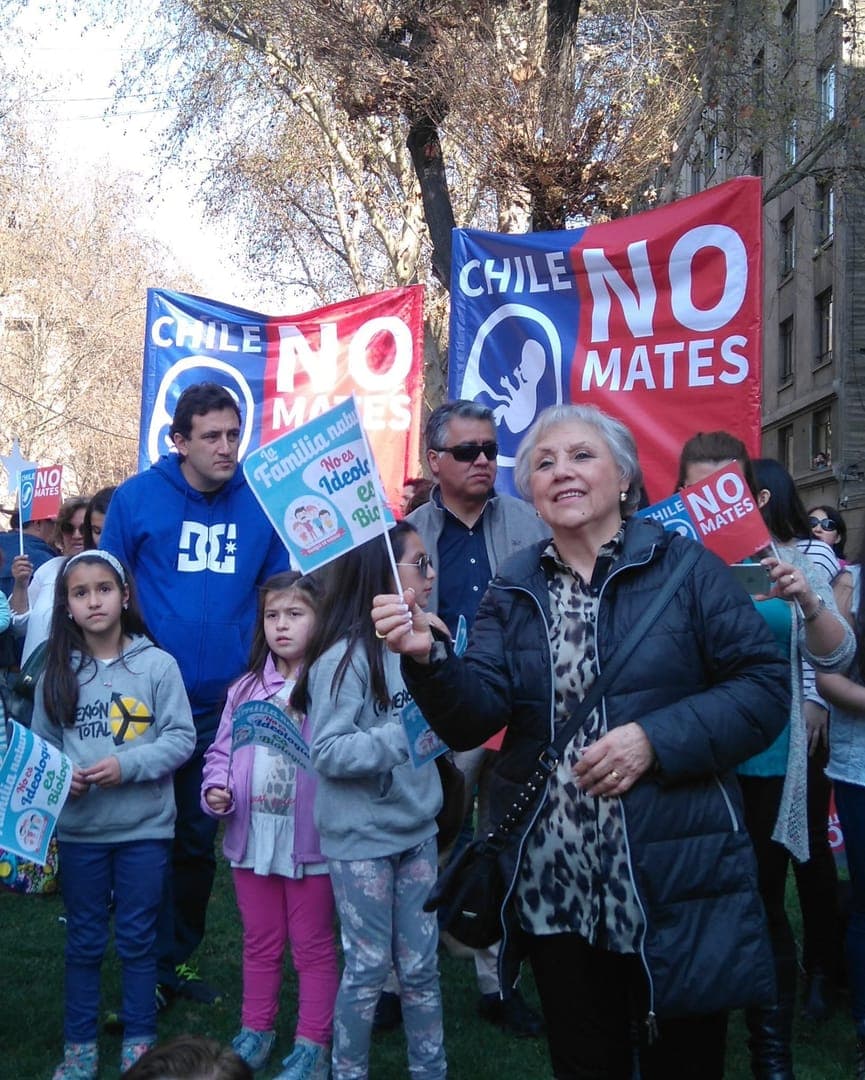One of the arguments in favor of legalizing abortion or keeping it legal is that forcing women to seek terminations outside the law will endanger their health, even endanger their lives. It is an argument currently being made in Chile, where there are government-backed moves to liberalize the abortion law, which is one of the world’s most restrictive.
Yet the statistics show that Chile, where abortion is prohibited by law since 1989 in all cases except where the mother’s life is in danger, proves precisely the opposite. Maternal death rates are about the same in Chile as in the United Kingdom — where abortion is legal and accessible — despite having half its income. And maternal death rates have been improving steadily each year.
Dr. Francisca Decebal-Cuza is a practicing psychiatrist, professor, and mother of two. She coordinates post-degree psychiatric clinical trials at the medical school of the Universidad de Chile, and is very familiar with the debates around the question of law and abortion.
“We have the lowest maternal mortality rate in South America,” she told me, “not in spite of abortion being illegal, but because it is illegal.”
What is the current abortion law in Chile?
The law prohibits every abortion whose purpose is to directly eliminate the life of the fetus. This means the only legal abortion is the one that occurs as an unwanted consequence of treating the mother whose life is in danger.
That is one of the most restrictive laws in the world. Abortion rights supporters have convinced many around the world that this is not good for women. How have things gone for women in Chile since the passing of these laws?
Since direct abortion became illegal in 1989, completely opposite to what everybody would have expected, maternal mortality rates in Chile have continuously decreased—by 94 percent in 20 years according to the most serious research by the epidemiologist Elard Koch. Maternal mortality linked directly to abortion has dropped by 99 percent. Banning legal abortion actually reduced the number of abortions in the country instead of increasing them.
I’ve a heard a little bit about a movement to change Chile’s abortion laws. What is happening?
Our current president, Michelle Bachelet, has sent a bill to the Congress which proposes to decriminalize direct and intentional abortion of the fetus in a few exceptional circumstances.
The problem is that when you read the actual bill you discover it is a legalization rather than a decriminalization, since it guarantees access to abortion in every health facility where a woman asks for it—even in religious hospitals with moral objections.
The circumstances are very flexible, because, for instance, there is no requirement for evidence that a pregnancy is a result of sexual violence. A malformation in the fetus can be diagnosed by any physician and not a specialist in fetal medicine. The threat to the life of the mother could be sometime in the indeterminate future.
Many of us believe that, while this law seems limited in scope, it is a classic Trojan horse which will end up legalizing abortion on demand. We’ve seen this unfold in other countries, and now it is happening in Chile.
I know that Planned Parenthood and the UN have been trying to change abortion laws in many countries in Central and South America. Are they involved in pushing to change the law in Chile?
They certainly are. President Bachelet was the Executive Director of UN Women right before being elected president in Chile and she has claimed that this bill will help women become subjects of rights by giving them the possibility to choose.
Also, two of the most important organizations behind the current abortion bill, the so-called Family Protection Association (APROFA) and Miles Chile, have received substantial funding from the International Planned Parenthood Federation as can be confirmed by anyone on their published financial statements for 2015.
Chile stands as shining example to the world that we don’t not need to choose between protecting and supporting mothers and their prenatal children. Do you have any advice for Crux readers who would like to help resist what Planned Parenthood and the UN are trying to do in Chile?
My best advice is to be informed and not be silent. Many things taken to be facts in the public discussion are not accurate and they must be challenged at every opportunity.
The bill states that in the case of fetal malformations the purpose of the abortion is to help the mother cope with her grief, but as a psychiatrist I know that the medical evidence signals the exact opposite. It is better, in terms of mental health outcomes, to maintain the pregnancy than to abort the baby. In the case of rape, the bill says that continuing the pregnancy will worsen the trauma of sexual violence. Yet abortion is directly linked to a greater suicide risk for women, and no textbook of psychiatry suggests that abortion can ever be a treatment for trauma.
No doctor will go to jail in Chile for performing an abortion to save the mother’s life in the case of an ectopic pregnancy. That is not considered illegal, and such abortions are actually performed on a daily basis in our hospitals. We have the lowest maternal mortality rate in South America not “in spite” of abortion being illegal, but because abortion is illegal.
Women are being told that they need more abortion. But one wonders why nobody pushing this legislation seems to want to help women in other areas of need: giving us fair salaries compared to men, for example, or stopping women and girls from suffering sexual assaults. There is so much that could be done: giving psychological or economic support to the mothers expecting a baby with prenatal difficulties, creating more possibilities for good quality health and education, or improving our systems of adoption or promoting maternity friendly policies.
These are all measures that would improve women’s health outcomes. Legalizing abortion definitely will not.














